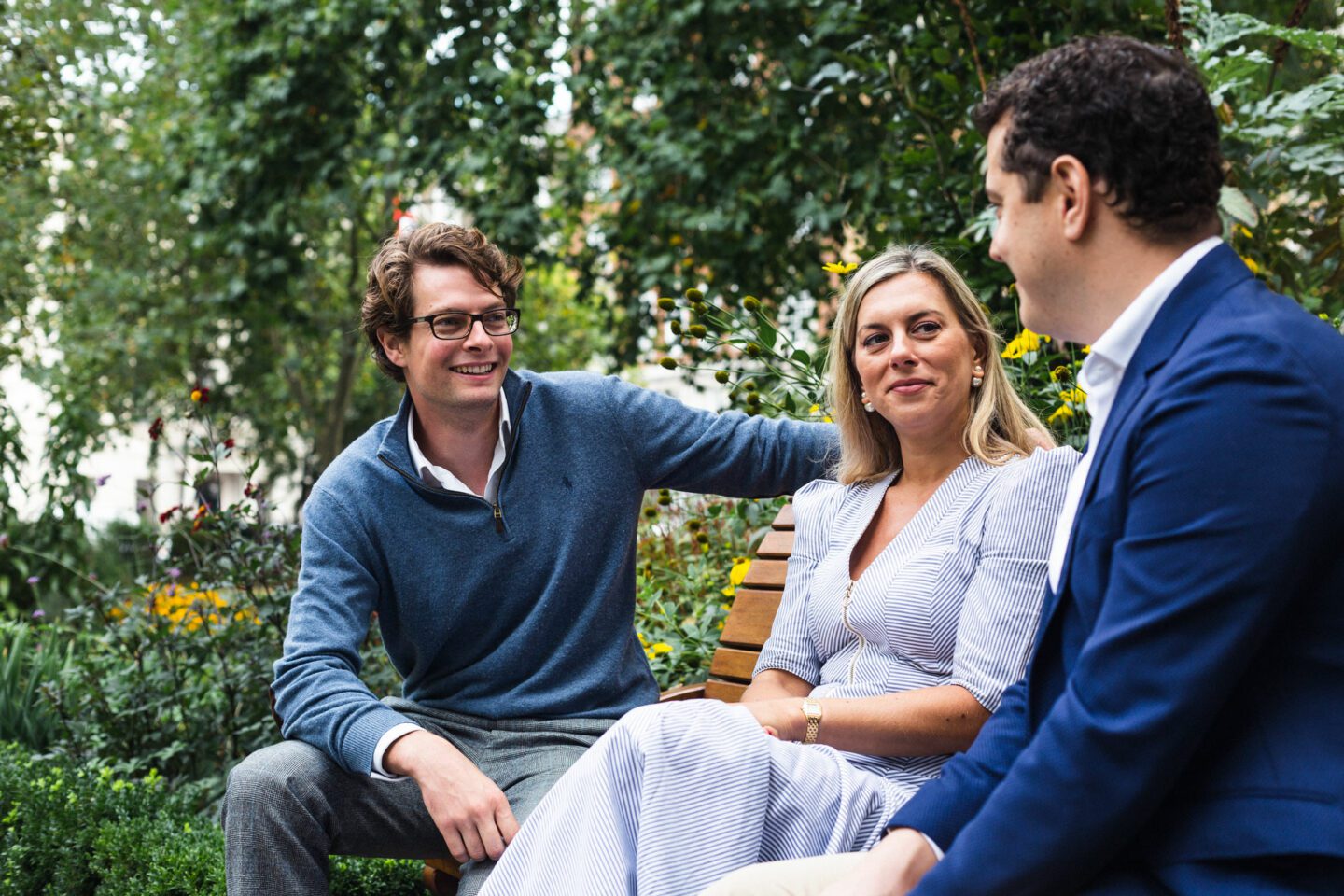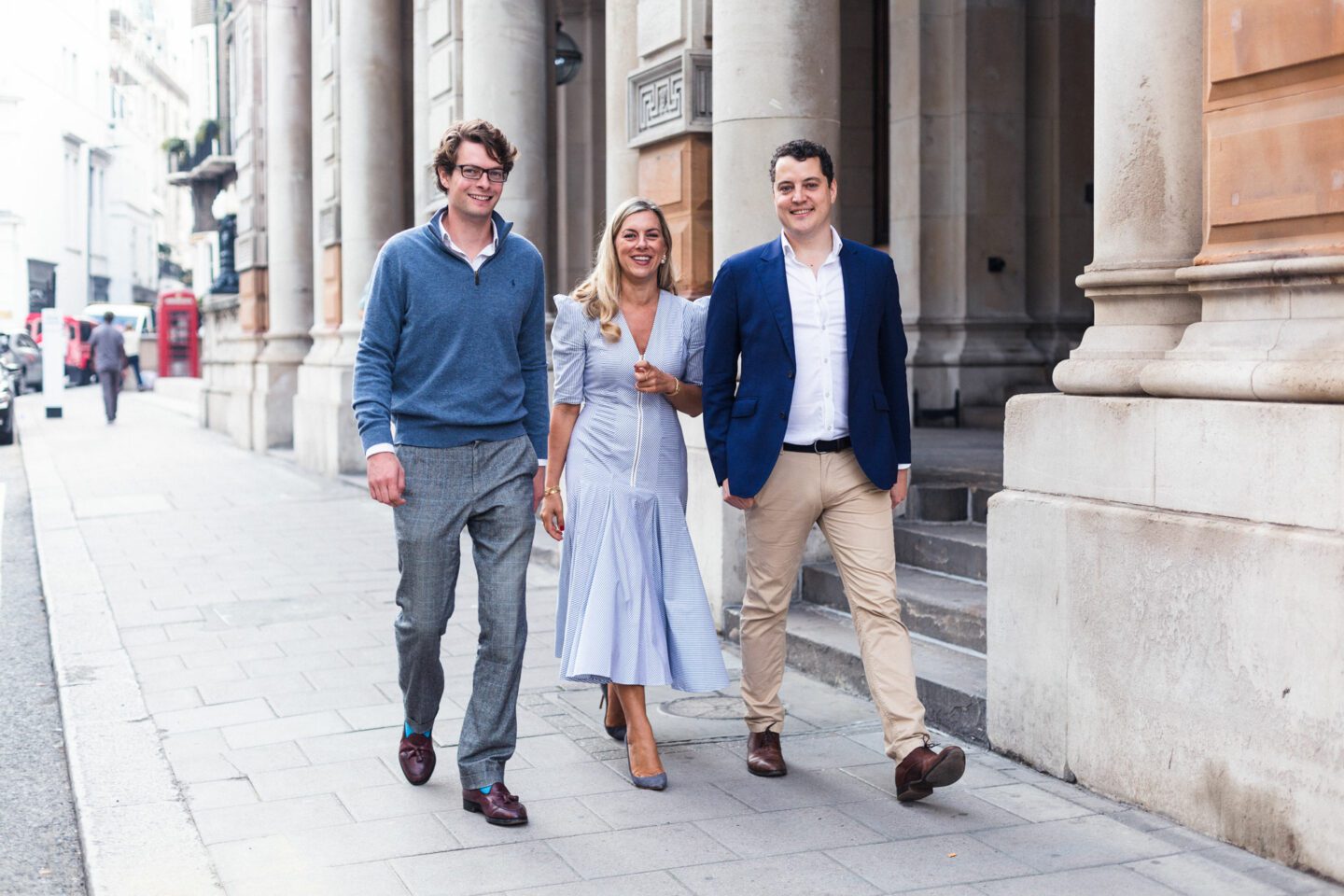
Kernow co-founder, Alyx Wood, who has a family home in Cornwall, named the firm Kernow, meaning Cornwall in the old Celtic Cornish language. He has a track record of generating substantial alpha from contrarian views on UK equities, and Kernow is forging a distinctive corporate culture, which includes becoming a B Corp to formalize its own commitment to corporate social responsibility as well as having a growing presence on social media such as LinkedIn and Instagram.
Since the company was founded in a coffee shop in 2019, Kernow’s long/short UK equity strategy has made 41.2% between November 2019 and April 2021, a period over which unloved and neglected UK equities delivered negative returns of 1.2% for the FTSE All Share. Kernow has also maintained much lower downside volatility than the market. Longer term, Wood has a strong record of outperformance in UK equity small cap – where his portfolio annualized at 16.5% gross between 2014 and 2018, and greatly outperformed peers. He has been personally investing – including shorting – since the age of 15.
We are all outsiders rather than traditionalists.
Dr. Christina Makris, Head of Client Development and Head of ESG, Kernow
A contrarian ethos defines both the corporate culture and the investment philosophy: “Many managers have no money in their fund and cannot articulate the inefficiency that they seek to exploit. The worst culprits are often big fund managers, who often have unremarkable performance, whereas boutiques tend to outperform. The best fund managers have skin in the game in terms of both the fund and the management company, as we do. I am fully committed to our investors. Cornwall is my favourite place and the joy it brings is the essence of the business I intend to build. Given its unique beauty and renewable energy potential, Cornwall is often called the California of the UK. To us, our strategy is also beautiful, progressive, and difficult to replicate. Our clients understand and appreciate professional success, balanced with the enjoyment of life,” says Wood.
Says co-founder and CEO, Edward Hugo: “I grew up fascinated by business and my dad was an early Internet entrepreneur. After university I went straight into early-stage, fast growing businesses, not the usual corporate graduate schemes at large firms that my peers enrolled in. I then spent ten years on the sell side to get a proper education in finance, where I met Alyx on a site visit to a listed potato farm in Jersey. When Alyx shared his plans with me in 2019, it was not a hard decision to join him”.

(L-R): Alyx Wood, Chief Investment Officer; Edward Hugo, CEO; and Dr Christina Makris, Head of Client Development and Head of ESG, Kernow Asset Management
“We are all outsiders rather than traditionalists,” says Head of Client Development, and Head of ESG, Dr. Christina Makris, who pivoted from academia to advising family offices, worked with Wood in her last role, and has authored an upcoming book titled Aesthetic Dining. “I have always had a contrarian streak in my career in academia and was attracted by the distinctive structure and entrepreneurial approach. Kernow enables me to bring together my background in philosophy, and responsible investing.”
Contrarian investing
At the core of Kernow’s investment philosophy is the belief that a contrarian approach leads to more skewed risk/reward opportunities. “If something is very well understood and priced in, then to bet against it will probably lose very little but if we are right and consensus is wrong, we stand to make an asymmetric gain akin to a small fortune. In fact, we just need the odds to narrow to collect the inefficiency premium. I was inspired by finance books including Seth Klarman’s Margin of Safety and Charles Mackay’s Extraordinary Popular Delusions and the Madness of Crowds. I have 109 other investment books on the bookshelf,” says Wood.
Their tendency for longs to have lower beta than shorts is one facet of the contrarian bias: “The longs generally have a lower beta, which is why few fund managers like them, as they expect them to underperform, and the reverse applies for the shorts. We are of the opinion that the historical beta is wrong, especially if there is an upcoming catalyst – and regardless, we can also scale up a low beta position to the market volatility and make a higher return with lower risk,” explains Wood.
Cornwall is often called the California of the UK. To us, our strategy is also beautiful, progressive, and difficult to replicate.
Alyx Wood, Chief Investment Officer, Kernow
The UK equity market
In late 2020 and early 2021, the UK market is a contrarian play that could offer generational value: “The UK currently trades at the largest valuation discount to Europe in my lifetime. It is on an emerging market valuation, at a huge discount to developed markets, which peaked around 40% in October 2020 and has only just started to narrow. Though there are post-Brexit fears, the UK should become viewed by the international community more like Switzerland or Norway, countries in Europe that are attractive places to do business, with slightly different rules but outside the EU. Sentiment is just starting to shift. February 2021 saw the first net inflows after eight months of net outflows, some large asset managers have gone overweight and nobody we know has increased their underweight stance this year. There is also growing M&A interest,” says Hugo, who authors Kernow’s Macro View.
Defensive risk management
But Wood does not have a permanent nor unconditional love of UK equities. Although Kernow’s average holding period for longs is anticipated to be about three years, Wood is not the sort of investor who will carry on holding positions through unlimited volatility. Running a hedge fund strategy reflects a defence threshold in terms of risk and loss tolerance, informed by years of experience. The risk process will tend to run winners and cut losses at a portfolio level. In March and April 2020, net exposure came down to as low as 20%. “When a crisis happens correlations spike to one and carrying a shield makes sense. In March 2020, we had one day down 8% and hit a drawdown of 12% after the market had dropped 34%. The instinct to batten down the hatches harks back to his personal investing history: “In bear markets I have always kept losses down to 15%. At a 10% drawdown I start cutting risk and can take time to reassess the market and earn back my risk premium. I lost 15% just after August 2007 and in hindsight I got out early, but I was also saved from being wiped out as the Great Financial Crisis swept the world. Capital preservation is key for long-term outperformance”.
Once the dust has settled however, Wood has the dry powder to come back: “After March 2020, we steadily rebuilt the book and had a stellar November 2020, up over 20%. Gross exposure, which rose towards 130%, and net past 70%”.

Market inefficiency
The valuation of UK equities will ebb and flow – but the inefficiency of the market is a constant that Kernow expects to exploit throughout cycles. Wood argues that the UK equity market is dominated by short term quant traders, and closet trackers, each of which creates different sorts of inefficiencies: “The short-term quant traders are not buying companies. They are buying short-term assets and are trying to get ahead of other investors. Companies have no engagement with these agents. The closet indexers talk a good game but just follow the trend to keep their jobs. Both agents mean companies can have stock prices a long way from their fundamental value. Trends and swings are exaggerated firstly by behavioural reasons and then extended by market participants’ business models. There are just not that many responsible owners out there so price discovery is uneven today. The efficiency of capital markets is also hampered. The reason for investment management is for financial markets to move money from those who have acquired wealth to those who have a productive use for it. If most of the intermediaries are not focused on this endeavor it will function less efficiently. We capture a small part of that inefficiency and the market pays us for fundamental price discovery over time”.
A repeatable process
Kernow’s three-stage stock selection process is repeatable and robust: “We determine valuation, based on a football field approach using multiple metrics such as DCF, scenarios, comparable discounts, money multiples, buyout valuations, and margin analysis. We then monitor a watchlist for valuation gaps, and investigate reasons for discounts, which might relate to analyst coverage, shareholder registers or structural factors. We are seeking under-reactions or over-reactions and need to see a clear reason for mean reversion. An example would be a pub business priced to go bust in the pandemic that could double or triple investors’ money if the business model survives. The third ingredient is a catalyst for the mean reversion, which could include dividends, buybacks, re-capitalisations or M&A. Catalysts are partly time weighted so a near term catalyst one month away will be given a higher weighting than a catalyst one year away,” says Wood.
Some parts of the process are automated: “We make good use of technology and programming to support or refute fundamentally produced investment theses, monitor our existing investment portfolio and to generate new trade ideas. In the past when I was Head of Equity Research at a boutique investment bank, some of these activities would have taken hours of my time, now they take just a few minutes,” says Hugo, who studied maths, AI, microsystems and nanotechnology. The research process also includes painstaking human input for management meetings, channel checks, and site visits where possible: “Away from the typical existing management contact, we also chat to corporate finance advisors, PRs, the last FD, last Chairman etc to get the real nuts and bolts of how the business is run. We research the shareholder register and sell side agenda. The full due diligence process adds up to hundreds of hours for each company and is ongoingly time consuming as catalysts and news-flow are constantly re-assessed,” says Wood.
41.2%
Kernow’s long/short UK equity strategy made 41.2% between November 2019 and April 2021
Mid cap sweet spot
Kernow can invest across all cap sizes above GBP100 million, in the LSE’s Main Market and AIM. In January 2021, the average long market cap was GBP4 billion, and shorts were smaller at GBP1 billion, but the size balance will move around opportunistically. The sweet spot for longs is often mid-caps: “They grow on average twice as fast as GDP, and often get taken over whereas for UK large caps the dividend yield has often been the main source of returns. Mid-caps also have scale, in terms of their operations, coupled with a low level of investment bank research,” says Wood.
All sectors are covered, and Hugo has special expertise in alternative energy, agriculture, technology, metals and mining, and oil and gas sectors, which he covered in previous equity research roles.
As expected, Kernow has a somewhat non-consensus tilt to its sector exposure, born out of its fundamental analysis. Today, it is overweight retail and underweight technology, a few years ago it would have been overweight energy and underweight consumer staples. “We do not target specific sectors; the causality runs from bottom to top,” says Wood.
Long ideas
In March 2021, Kernow is underweight of resources in general, though there are some exceptions, such as a Russian steelmaker. “It is a high quality, low-cost producer, with a well incentivised management team. It was under-priced because the City disliked the remuneration structure and there was uncertainty over the dividend,” says Wood.
General insurance appeals as a sector because Wood envisages a multi-year hardening of insurance premiums whereas the market is discounting only an ephemeral spike. He also ranks it as the cheapest sector in the market. Stock picks include a large cap insurer that is selling off non-core divisions to make itself leaner and fitter.
The UK currently trades at the largest valuation discount to Europe in my lifetime. It is on an emerging market valuation, at a huge discount to developed markets.
Edward Hugo, CEO, Kernow
A typical long position misunderstood by the stock-market is a care home provider with a differentiated business model. “The industry perception of care homes is of overcapacity and over-leveraged businesses that have often gone bust or fallen prey to scandals, so the firm is priced as a value stock when it should be seen as a growth stock. It is a growing company, with an annuity style business, aligned management and market leading key performance indicators. Its average customer age is 34 years old, it has low debt, high customer service scores, and is growing organically. Some 40% of its properties are freeholds, and a takeover of a slightly larger business should generate synergies that will lead to margin expansion and dividend payouts. We expect that stock could triple or quadruple and could become an attractive target for a private equity bid,” says Wood.
Another long holding is a relatively new corporate entity: a construction business that was spun out of a housebuilder. “It traded below cash value and had a negative enterprise value at one stage. New management is now well incentivized, and our channel checks suggest that their plans are credible. When they pay a dividend, they could get re-rated and even at conservative estimates of profit margins they could triple in value – or more likely may be taken over by private equity. Key institutional shareholders are also building stakes,” says Wood.
Ferreting out aggressive accounting
“Company accounts nowadays are excessively bureaucratic and have lots of adjustments, leading to “dirty EBITDA” which needs to be corrected. This is a war game that gets harder and harder to crack. The smart finance directors know how to window dress, so Bloomberg takes the wrong numbers, but we never rely on third party data for historical financials,” points out Wood, who trained as a chartered accountant with KPMG before moving onto Deutsche Bank and then a boutique asset manager, and who also has a natural grasp of accountancy. “My dad teaches accountancy and has taught a fair few of the PLC finance directors out there. He sold his business to Kaplan which is where my brother now works”. Kernow has a simple approach, linking cash to reported profits and finding the gap on the balance sheet. Reading accounts for me is the same skill as some people have for reading music and hearing the song immediately. I was inspired by Jim Chanos’ Enron short. My best short was Globo PLC, where the accounts did not add up. The gap between profits and cash was the same as the amount it raised each year in equity markets, for several years in a row. Our channel checks came back with red flags, and we also noticed some celebrated short sellers involved,” says Wood. Though this historical short is mentioned, and Wood respects some short sellers who go public, he does not want Kernow to become short activists. Appraising governance is however an important part of their investment and ESG process.

ESG, governance and voting
Kernow has observed that the scarcity of some of the “E” stocks in the ESG sector has helped to inflate their valuations but has not shorted such names partly because overvaluation alone is not sufficient to warrant a short. “We need to see a catalyst for valuation coming down. If we traded US stocks for example, we would not short Tesla, because it is so fundamentally divorced from reality that it can always become more divorced from it,” says Wood. Captive demand from pension fund investors could also lead high valuations to persist: “The pace at which pension assets are transitioning to ethical investing poses a danger of increased greenwashing,” says Makris, who has a BCVA ESG Certificate.
Kernow integrates ESG into its investment process but does not label the flagship strategy as ESG. “At the simplest level, Kernow is a responsible investor but is not marketed as ESG per se, though we could offer segregated mandates with exclusions that can be clearly defined,” says Wood. “Equally, we are sceptical about the performance track records of some ESG and impact funds,” says Makris.
For now, the most important ESG approach is governance of investee companies. Kernow does not approve of outsourcing voting and owns physical rather than CFDs to enable voting. “Most resolutions are pretty standard, but we never abstain and might vote against companies’ remuneration policy, or shareholder incentive schemes. They should be linked to share price and margin performance. Many firms are outsourcing pay structures and copying other companies, but a good board should set the policies independently,” says Wood. “If we vote against a resolution, we will raise the issue privately with management,” he adds. Kernow does not plan to table their own resolutions. More broadly, Kernow engages with management around issues such as capital allocation, and dividend policies, where many companies have inefficient practices.
Kernow is monitoring companies’ ESG metrics with both in house research and external agencies.
Becoming a B Corp
ESG also applies to Kernow’s own CSR (corporate social responsibility). “We are becoming a B Corp, and we expect this will become like Fairtrade for coffee especially for newer funds and younger generations. It will become a default choice for firms thinking about ESG factors and is already very big in the US. In financial services it is more difficult to become a B Corp. We want to show our commitment. We believe that the B Corp requirements are more proactive than the quasi-regulatory UNPRI approach. They cover internal processes and policies, hiring, remuneration, supply chains, and self-assessment. Our shareholders, board, clients and prospects are all intrigued by it,” says Makris.
Ready for a runway of growth
Many start-ups obtain regulatory approval under the umbrella of an appointed representative or regulatory hosting structure, whereas Kernow has chosen to be directly regulated by the UK FCA since December 2020 and has also assembled a substantial board. It contains two entrepreneurs, one of whom built SG Wealth, a Fintech and agricultural entrepreneur, a law firm partner, a head trader and former hedge fund manager, and a company accountant as company secretary. “They are exceptional in each of their specialisms and are full non-executive directors, not just advisors. The directors have helped us with regulatory set up, were our first external investors, and contributed working capital,” says Wood.
“The objective is to have in place infrastructure and a board that is scalable to assets up to our capacity of GBP500 million, including a mainstream fund structure as well as its private managed accounts service. Initial asset raising has focused on friends and family offices and will widen out to other UK entities before approaching the US,” says Wood.
Alpha generation rather than asset gathering clearly defines Kernow’s capacity target and the ethos of the firm.
- Explore Categories
- Commentary
- Event
- Manager Writes
- Opinion
- Profile
- Research
- Sponsored Statement
- Technical